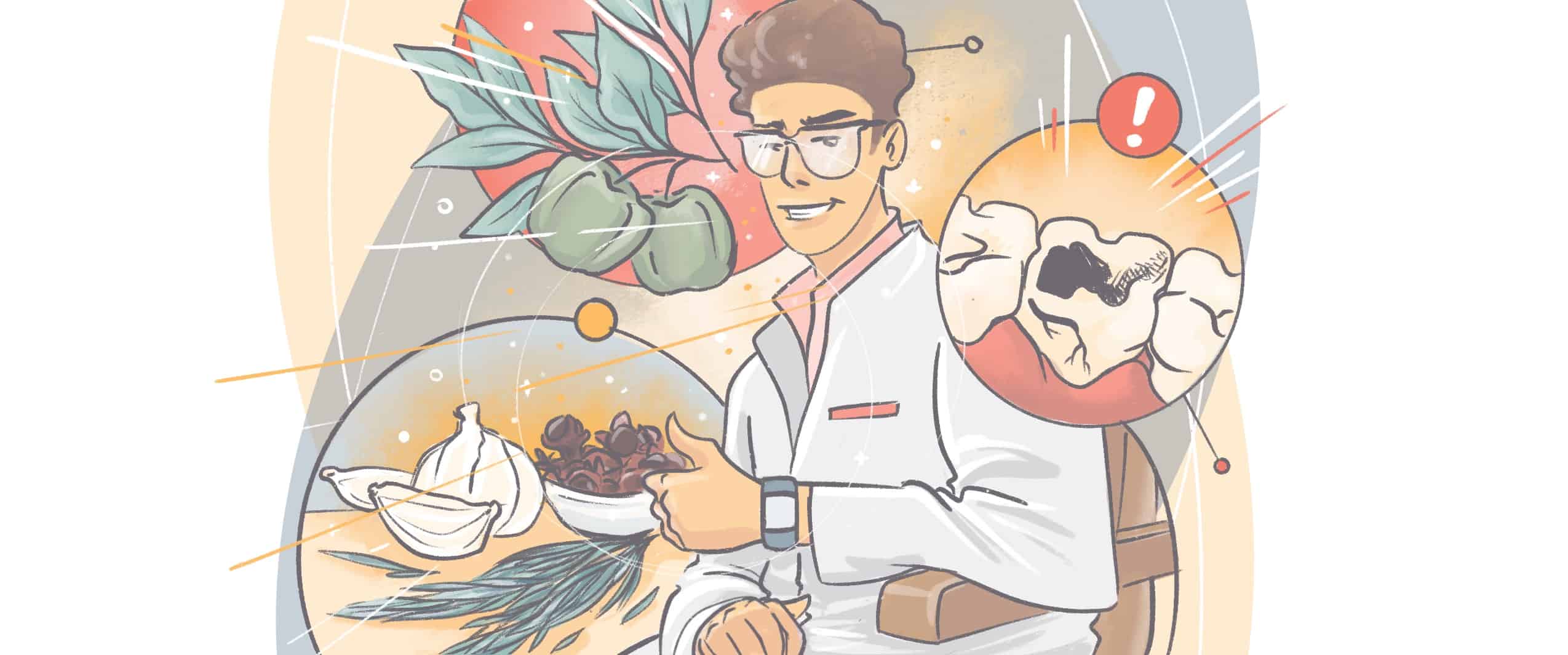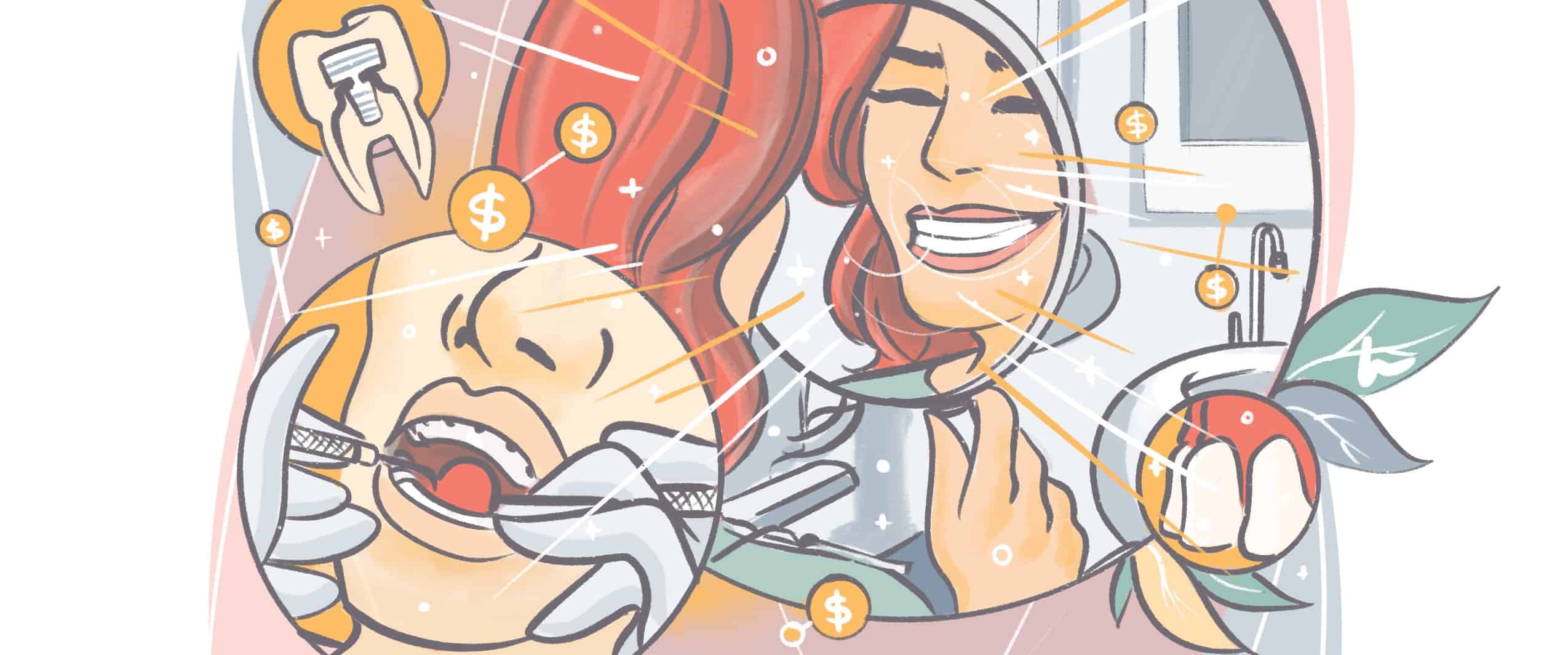A toothache can feel bad. Like, really bad. It can happen suddenly and cause major pain. In one study, researchers reported 7.5 million cases of toothache among kids in the previous six months. Another study reported 55.1% of adults have had a toothache that caused them major discomfort. There are a few home remedies for a toothache.
Of course the best way to treat a toothache is to see a dentist. They’re the best equipped to what’s causing your pain and provide you with the most effective treatment plan. Diseases that cause toothaches can turn into something more serious and higher risk if you leave it without a dental examination.
What’s the best and fastest remedy for a toothache?
Seeing a dentist is the best way to cure a toothache and prevent your toothache from turning into something more serious. It is the only way to be sure you are getting rid of the toothache at its cause and not letting the disease fester and get worse.
Still need answers?
Book with a top-rated dentist in your city to get the treatment you need.
The best home remedies for a toothache
There are a few home remedies you can use to temporarily relieve pain while you wait to see a dentist. Some tend to work better than others, but overall, people may have different responses to these toothache remedies. Here are some home remedies for a toothache
1. Clove oil
Clove oil is a solution that contains clove extract. The active ingredient in clove oil is known as eugenol, a natural agent that serves as an anesthetic and can help reduce toothache pain. What this means is that clove oil will essentially numb the area around your tooth. This includes the nerves that are located inside the tooth, as well as the surrounding gum.
When using clove oil for a toothache, be sure to do so with a small piece of cotton. Place a small amount of the oil on the cotton. Then bite onto the cotton, ensuring the area with the clove oil touches the affected tooth. Make sure you bite gently, as the idea is only to keep the clove oil close to the tooth and not apply unnecessary pressure.
One study looked at the anesthetic properties of clove oil. The researchers found that the chemicals in clove oil may interact with the opioid system in the body. This explains the pain relief effects that it yields.
2. Salt water
If your tooth has an infection or abscess, a good home remedy might be to rinse your mouth with some saltwater. The great thing about this remedy is the fact that it’s likely one of the most affordable options.
You should use about half a cup of warm water for this one. The water should not be boiling, however. It should be tolerable. Mix about half a teaspoon of salt with the water. Stir properly, and then use this solution as a mouthwash. Make sure not to swallow the solution. Spit it out after swishing the saltwater in your mouth a few times.
Due for a checkup?
Find a top rated dentist near you that takes your insurance.
The saltwater will help to reduce the growth of bacteria but does not replace a visit to the dentist if there is an abscess. Infection management methods will be needed to take care of the abscess without the risk of the bacteria spreading to other parts of the mouth and causing broader dental problems. This is one of many effective home remedies for a toothache.
3. Hydrogen peroxide
Hydrogen peroxide is another home remedy for toothaches that is effective. This option is great for fighting off bacteria that cause an infection in your teeth and lead to tooth decay. It can also act as a pain reliever.
Use a 3% hydrogen peroxide solution. Mix half hydrogen peroxide and a half glass of warm water, and rinse with it.
4. Tea bag
A tea bag that contains some peppermint extract can help to numb the area around the painful tooth. A peppermint tea bag is also known to be a highly effective option for soothing gums that feel sensitive. The sensitivity may be due to infection or swelling in the gums.
To use a peppermint tea bag, add the bag to a cup of warm water. Remove it and allow the tea bag to cool down just a little bit. When placing it inside your mouth, the bag should still be warm, but not hot enough to burn your mouth. Simply keep the tea bag on the affected tooth for a while for some much needed temporary relief.
5. Cold compress
When it comes to pain management, most people are familiar with cold compresses. This involves the use of an ice pack. The ice pack is wrapped in a towel to prevent damaging your skin. Hold the ice pack against the cheek on the side of your mouth where the painful tooth is located. You can hold the ice pack there for a couple of minutes, but not too long.
6. Garlic
Garlic is associated with numerous medicinal and antibacterial properties. Its chemicals may also help to reduce pain. A garlic paste can be applied to the gums and teeth in the affected area.
7. Guava leaves
The naturally occurring chemicals of guava leaves make it another effective remedy for toothache. They have anti-inflammatory properties and promote healing. You can chew on a few of these leaves to experience the benefits.
8. Cloves
While we have already mentioned clove oil, some people do find that cloves work just as well. Take a whole clove and place it on the tooth that is painful. Bite onto the clove gently. You do not want to apply too much pressure, as this could cause the pain to become worse. Simply hold the clove between your teeth for a while. As your saliva mixes with the clove, the chemicals will start to seep into your tooth. This is a very effective way of dealing with nerve pain in the tooth as well.
9. Thyme
Thyme is an herb that has both antioxidant and antibacterial agents. Both of these properties can help reduce bacterial growth in the dental cavity. You may find that it is easier to use Thyme oil. Add some of the oil to a cotton ball, then place the cotton on your tooth.
10. Vanilla Extract
Another option is to use some vanilla extract. You can place the extract on a cotton ball and then bite onto the cotton with the affected tooth. Do not overuse this method, however, as vanilla extract contains some alcohol. A small amount may help to reduce the pain symptoms, but using too much can irritate your gums.
Can acupuncture help?
Acupuncture is considered an alternative method for dealing with a toothache. The technique is used for a large variety of purposes. There are studies that show the efficacy of acupuncture in various scenarios, including the use of the techniques in pain management.
How do you sleep with a toothache?
A toothache can definitely interfere with how well you sleep. Try some of these tips:
- Start off by trying some natural remedies. If these do not work for the pain, use an over-the-counter painkiller.
- Make sure your head is a bit elevated when you lie down in bed.
- Make sure you do not eat anything that is exceptionally cold or acidic too late at night. This could irritate your gums and the nerves inside a tooth.
- Use a mouth rinse after brushing.
- You can also use a cold ice pack on the side of your mouth before going to bed as well. This may help to reduce the pain too.
- What is the best painkiller for toothache?
The painkiller with the most promising effects, however, is said to be ibuprofen. This is a non-steroidal anti-inflammatory drug that helps to reduce swelling in the tissue surrounding the affected tooth. Ibuprofen can be used even if an infection is present. It would be combined with an antibiotic drug in this scenario. You should consult a dentist to prescribe the most effective treatment for your particular case.
See a dentist to get rid of toothache pain fast
Home remedies may help to temporarily relieve pain. The only way to really understand the root of your pain is to see a dentist.
Diseases that cause toothaches can turn into something more serious and higher risk if you leave it. Seeing a dentist is the best way to cure a toothache, prevent them, and prevent your toothache from turning into something more dangerous
Still need answers?
Book with a top-rated dentist in your city to get the treatment you need.
Toothaches can make life stop all of a sudden, preventing you from continuing with your daily routine. There are many reasons for toothaches to develop, including chips in the tooth, infection, and more. When a toothache occurs, you should find a dentist. A dentist near you can determine what the cause is and provide adequate treatment to stop the pain.
The dentist may advise you to have chips fixed or extracted in case of severe damage. A root canal may be used to remove the root of the tooth, and appropriate treatment can be offered if there is an infection in the tooth. Keep in mind that not home remedies for a toothache are effective.
Listen, nobody likes a toothache, but it’s curable, so don’t worry too much. If our home remedies don’t help, make an appointment and put yourself on the road to treatment.







